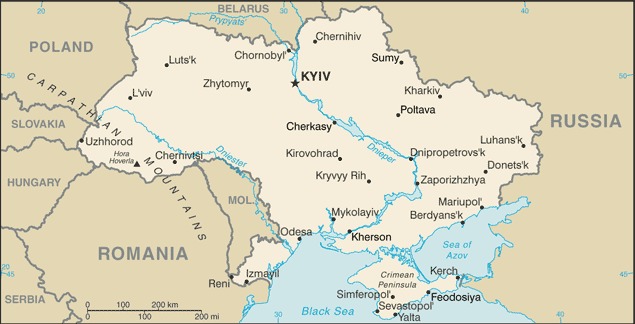Putin Tramples on Laws of War in Ukraine Invasion
Such bludgeon and bulldozer tactics were a hallmark of World War II-era carnage. But since that time, the nations of the world have united to enact a series of treaties designed to prevent the slaughter of civilians during armed conflict.

Crime and Punishment?
The agony of Mariupol has dragged on for almost a calendar month, with Vladimir Putin’s troops pounding the city of 450,000 into rubble through air strikes, artillery fire, and ground assault. Of late they have been grinding their way street-by-street, house-by-house through that beleaguered port city on the Azov Sea coast.

Anastasia Ponomareva, a 39-year-old Mariupol school teacher who was one of the lucky few to escape, described her city’s fate during an interview with the BBC. On the left bank of the Kalmius River, “there’s no residential building intact, it’s all burned to the ground,” she said. “The city center is unrecognizable.”
The wholesale destruction inflicted in Mariupol is in large part due to the disregard shown by the Russian military toward the established law of armed conflict.
Russian forces were accused of opening fire on civilians evacuating the city via humanitarian corridors negotiated by the International Committee of the Red Cross as long ago as March 5-6
Several days later, the Russian air force bombed the maternity ward of City Hospital No. 3. The Guardian reported that a young mother who was wounded in the Russian attack moaned “kill me now” upon learning that her newborn infant was dead. The mother died several hours later.
As the siege dragged on, the Donetsk Regional Theater in downtown Mariupol was transformed into a shelter where hundreds of civilians sought haven from Russian bombardment. Satellite imagery dated March 14 shows that the building was marked on two sides by giant Cyrillic letters spelling out the word “children.” Two days later, the theater was bombed by Russian attack aircraft.
On the same day, the Australian Broadcasting Corporation reports, Russian troops seized another hospital and held hostage 400 Ukrainian civilians as human shields. On March 20, Russian attack aircraft bombed an art school that was being used as a shelter for Ukrainian noncombatants.
Such bludgeon and bulldozer tactics were a hallmark of World War II-era carnage. But since that time, the nations of the world have united to enact a series of treaties designed to prevent the slaughter of civilians during armed conflict.
Article 18 of the 1949 Fourth Geneva Convention states that “civilian hospitals organized to give care to the wounded and sick, the infirm and maternity cases, may in no circumstances be the object of attack.”
The ICRC lists the Russian Federation as a party to the 1949 Geneva Conventions because Russia took it upon itself to accept the binding force of ratification by its predecessor, the Soviet Union.
Yet it requires terminal naïveté to expect that a despot who orders the poisoning of political dissidents like Alexander Litvinenko and Sergei and Yilia Skripal would abide by the laws of war. Mr. Putin has already demonstrated his willingness to employ mass wrecking ball tactics when, as Russian prime minister, he ordered the indiscriminate destruction of Grozny during the second Chechen war of 1999-2000.
While criminality committed in a forgotten corner of the Caucasus passed without much notice prior to the advent of the smartphone, it is now the stuff of front-page news when everyone with an iPhone doubles as a documentary filmmaker.
The scope and severity of Russian lawlessness have pushed world leaders to abandon the opaque niceties that are the normal mode of diplomatic discourse.
On March 12 Britain’s health minister, Sajid Javid, denounced the bombing of hospitals and vowed that “Russia will pay for the crimes it’s carrying out.” Four days later President Biden personalized that same accusation by labeling Mr. Putin himself as a “war criminal.”
On March 20, Australia’s foreign minister, Marise Payne, followed suit, declaring: “the targeting of innocent civilians and civilian structures are war crimes, and President Putin must be held to account.”
Of course, the central problem of international law was succinctly expressed by Stalin in a cynical quip reported by Time magazine in 1943: “the Pope, how many divisions has he?”
While diplomatic pressure and economic sanctions have their place, the war in Ukraine will be decided the same way armed conflicts have always been resolved — at the pointy end of a spear or bayonet.

